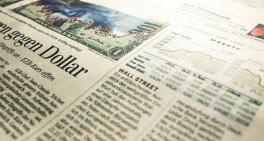Cake case before Supreme Court has ties to barbecue decision
Court Watch
The upcoming Supreme Court argument about a baker who refused to make a cake for a same-sex couple makes some civil rights lawyers think of South Carolina's Piggie Park barbecue.
When two African-Americans parked their car at a Piggie Park drive-in in August 1964 in Columbia, South Carolina, the waitress who came out to serve them turned back once she saw they were black and didn't take their order.
In the civil rights lawsuit that followed, Piggie Park owner Maurice Bessinger justified the refusal to serve black customers based on his religious belief opposing "any integration of the races whatsoever."
Federal judges had little trouble dismissing Bessinger's claim.
"Undoubtedly defendant Bessinger has a constitutional right to espouse the religious beliefs of his own choosing, however, he does not have the absolute right to exercise and practice such beliefs in utter disregard of the clear constitutional rights of other citizens," U.S. District Judge Charles Earl Simons Jr. wrote in 1966.
By the time the Supreme Court heard the case in 1968, the issue was the award of fees to the lawyers representing the black South Carolinians who sued Bessinger's restaurants. But in a footnote to its unsigned 8-0 opinion, the court called the religious freedom argument and Bessinger's other defenses "patently frivolous."
Fifty years later, civil rights lawyers are pointing the Supreme Court to Bessinger's case in support of Charlie Craig and David Mullins, the gay couple who were turned away by Colorado baker Jack Phillips, giving rise to the high court case that will be argued Tuesday.
"The logic of Piggie Park and other precedents overwhelmingly rejecting religious justifications for racial discrimination apply squarely to the context of LGBTQ discrimination," the NAACP Legal Defense and Educational Fund said in a Supreme Court brief. The fund also represented the people who sued Piggie Park.
Both cases involve laws intended to prevent discrimination by private businesses that open their doors to the public. In the case of Piggie Park, the law was the Civil Rights Act of 1964. The bake shop case involves the Colorado Anti-Discrimination Act, which prohibits businesses from refusing to sell their goods to people on the basis of sexual orientation among other things.
As the case has come to the justices, the focus is on Phillips' speech rights, not his religious beliefs. As a cake artist, he claims a right not to say something with which he disagrees.
Related listings
-
Trappers ask court to throw out lawsuit over US fur exports
Court Watch 11/25/2017Fur trappers are asking a federal judge to throw out a lawsuit from wildlife advocates who want to block the export of bobcat pelts from the United States.Attorneys for trapping organizations said in recent court filings that the lawsuit against the ...
-
Court: Colorado county wrongly OK’d asphalt plant near homes
Court Watch 11/22/2017A Colorado court has overturned Weld County’s approval of a $20 million concrete and asphalt plant currently under construction, saying the county had evidence the plant would violate noise standards.The Greeley Tribune reports the Colorado Cou...
-
Free Speech Is Starting to Dominate the US Supreme Court's Agenda
Court Watch 11/15/2017To get the Supreme Court's attention these days, try saying your speech rights are being violated.Whether the underlying topic is abortion, elections, labor unions or wedding cakes, the First Amendment is starting to dominate the Supreme Court's agen...




